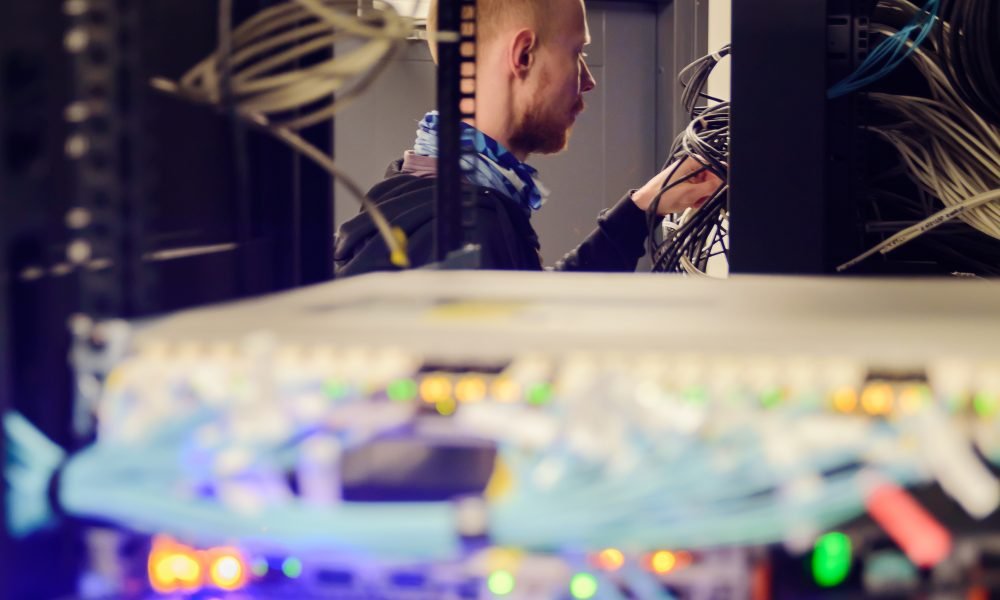The following content was written by satoshi on August 07, 2010, 05:46:09 PM in the thread Bitcoin minting is thermodynamically perverse. All content is owned by the author of the bitcointalk.org post. (original)
It’s the same situation as gold and gold mining. The marginal cost of gold mining tends to stay near the price of gold. Gold mining is a waste, but that waste is far less than the utility of having gold available as a medium of exchange.
I think the case will be the same for Bitcoin. The utility of the exchanges made possible by Bitcoin will far exceed the cost of electricity used. Therefore, not having Bitcoin would be the net waste.
If there’s something else each person has a finite amount of that we could count for one-person-one-vote, I can’t think of it. IP addresses… much easier to get lots of them than CPUs.
I suppose it might be possible to measure CPU power at certain times. For instance, if the CPU power challenge was only run for an average of 1 minute every 10 minutes. You could still prove your total power at given times without running it all the time. I’m not sure how that could be implemented though. There’s no way for a node that wasn’t present at the time to know that a past chain was actually generated in a duty cycle with 9 minute breaks, not back to back.
Proof-of-work has the nice property that it can be relayed through untrusted middlemen. We don’t have to worry about a chain of custody of communication. It doesn’t matter who tells you a longest chain, the proof-of-work speaks for itself.
The following content was written by gridecon on August 07, 2010, 10:43:17 PM in the thread Bitcoin minting is thermodynamically perverse. All content is owned by the author of the bitcointalk.org post. (original)
[…]
Proof-of-work has the nice property that it can be relayed through untrusted middlemen. We don’t have to worry about a chain of custody of communication. It doesn’t matter who tells you a longest chain, the proof-of-work speaks for itself.
Thanks very much for your reply. I agree with your analysis, and this thread has actually changed my mind as to my initial criticism. After more careful study of the design of the Bitcoin network and trying to understand the exact manner in which Bitcoin attempts to create value from the computational work invested, I am now inclined to think that bitcoin is in fact high EFFICIENT rather than inefficient. My thinking now is that bitcoin does not, in fact “waste” computational work at all – instead it works hard to deliver the most value possible from that computational work. Something like a governnment issued fiat currency may not have any obvious energy burden beyond its printing – but in fact, maintaining the value of a fiat currency requires a substantial investment in maintaining police enforcement, a legal system, and national defense. In comparison to the energy cost of hiring police officers to enforce economic honesty, the energy costs of investing cpu cycles in guaranteeing that honesty mathematically seem very small!
The following content was written by joechip on August 09, 2010, 02:23:15 PM in the thread Bitcoin minting is thermodynamically perverse. All content is owned by the author of the bitcointalk.org post. (original)
I think the case will be the same for Bitcoin. The utility of the exchanges made possible by Bitcoin will far exceed the cost of electricity used. Therefore, not having Bitcoin would be the net waste.
I agree with nearly everything you said, but I disagree, fundamentally, with the bolded. Gold mining is not a waste of energy. It is the opposite of waste, it is the measure of value people place in the ‘utility of having gold as a medium of exchange’ or a store of wealth, jewelry around their body parts or connectors on their home theater system. If there was no demand for gold, the price would be zero. Hence it is not a ‘waste,’ by definition.
I object strenuously to this idea, promulgated by the Monetarists, that the production of money is wasted capital which could be spent on other wealth-building projects. It’s a short-sighted argument which does not fully encompass the value we place in our money.
It’s semantics, yes, but the negative connotations associated with the word “waste” is a tool of the money masters designed to confuse us and elevate their bankrupt system.
Ta,
The following content was written by MoonShadow on August 09, 2010, 07:12:09 PM in the thread Bitcoin minting is thermodynamically perverse. All content is owned by the author of the bitcointalk.org post. (original)
The power used is not wasteful. It is simply what the owner is willing to commit to the project. Even so, it may be used even as “waste heat”. I am an electritian by trade, and years ago I had the following idea form, while installing a ‘heat trace’ network on insulated sprinkler lines inside an open air parking garage.
The ‘heat trace’ is a fairly expensive cable that has a continuous resistive core to produce low intensity electric heat along the length of the pipe that it’s taped onto. Insulation is then wrapped around this assembly. The best, and most efficient, systems have a temp reactive core; so that the closer to the freezing point that the cable itself becomes at any given length, the lower the resistance across the core becomes, resulting in an increase in heat output along the colder and less well insulated sections.
At the time, I was playing with an early form of distributed computing called “Condor”, which allowed single processes to be exported to other computers upon a network and their disk I/O shipped back across the network to a master server without the process being able to tell the difference. I thought then that a small “computer on a chip” wired upon a flat network cable would be able to effectively perform the same functions of keeping the pipes above freezing with local temp sensitivity while also crunching numbers in exactly the same way that bitcoin requires. Such an idea would require a network that permited quite a bit of power in order to not need an unacceptable number of power points along the pipe, but imagine the usefulness of such a system for companies that have such needs in very high (or very low) latitudes.
What if such a system were retrofitted onto the Alaskan Oil Pipeline, for example, one mile at a time?
The following content was written by satoshi on August 09, 2010, 09:28:39 PM in the thread Bitcoin minting is thermodynamically perverse. All content is owned by the author of the bitcointalk.org post. (original)
The heat from your computer is not wasted if you need to heat your home. If you’re using electric heat where you live, then your computer’s heat isn’t a waste. It’s equal cost if you generate the heat with your computer.
If you have other cheaper heating than electric, then the waste is only the difference in cost.
If it’s summer and you’re using A/C, then it’s twice.
Bitcoin generation should end up where it’s cheapest. Maybe that will be in cold climates where there’s electric heat, where it would be essentially free.

